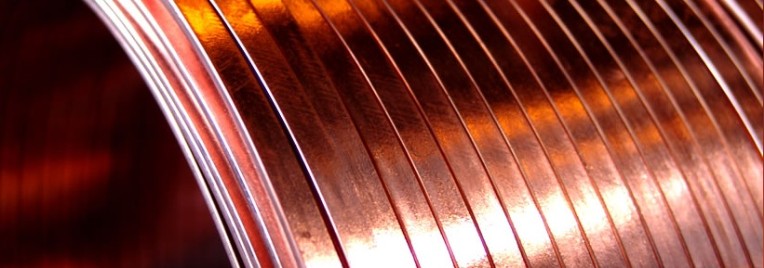Copper is a wonder metal, especially since it is full of properties that render it extremely useful for many industrial and domestic purposes. It has been in use for several centuries now, and is still going quite strong.
Copper is moulded into several shapes after extraction as ore from the earth. It is available in varied forms such as bars, cables, wires, rods and more. Generally, wires and cables are used for electrical purposes, and several manufacturers also go the extra mile by customizing the wires for specific uses for their clients.
Choosing the wire
For any project, using the right kind of wire is extremely important. There are several considerations to ponder before the best applicable wire can be decided on. For this, a detailed discussion with the electrician is vital since they would decide upon the type of metal wire along with the appropriate gauge depending upon factors such as amperage load and the application.
Among the various types of wires and cables is also offered Copper Flat Wire. These obviously are made from copper for specific electrical applications in the form of high-frequency cables, connecting wire, fuses, FFC cables, shielding wire, safety fuses made from fusible conductors, welding wires, and more.
Most copper flat wires are made as according to the set EU or US standards and are made available in differing strength classes. Also, in case coating is required, the coating materials are silver, tin, nickel and others upon request.
PVC Wires & Cables
Insulation is vital for wires. For this purpose, PVC or Poly Vinyl Chloride is used for the purposes of bedding, sheathing and insulation. Earlier, rubber was used for this purpose, but PVC replaced it in the 1950s. This was due to its ease of processing. PVC is a hardy material; it is cost effective and has excellent anti-aging properties. Its life span is typically 25-30 years of service life.
Why it is so hardy is because its properties can easily be modified. Inherently, PVC is a hard and rigid material. But it can easily be modified with various ingredients such as stabilizers, plasticizers, fillers, etc. These enhance its properties and offer aid in processing. This also makes it simpler to process and recycle, especially when it is used as a thermoplastic type. PVC that hardens post polymerization is unsuitable for insulation and protection of wires and cables.
PVC works like a fire retardant, which makes it vital for electrical cables. If need be, PVC can also be made resistant to acids, oils, alkalis, etc. The use of additives also aids in the improvement of its durability and use in extreme temperatures, which can range anywhere between -40 to over 105 degrees Celsius. Another advantage is enhancement of resistance to sunlight and water and reduction of smoke emissions.
The benefits of PVC wires and cables are legion – it is tough, has better dielectric strength, and improved temperature resistance.
